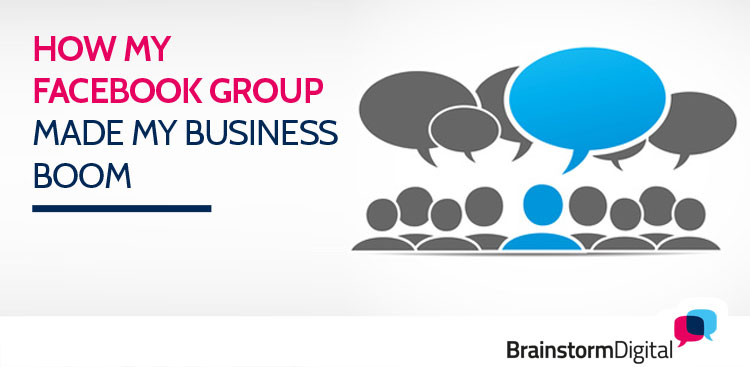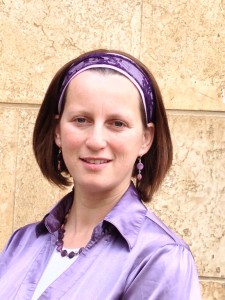
How can social media transform a company, particularly one with limited resources?
To find out, I spoke to Financial Consultant Rifka Lebowitz, who has grown her Facebook group ‘Living Financially Smarter in Israel’ to over 5,500 members, significantly boosting her business in the process.
I asked her how she got the group off the ground, the secret to its success and what advice she has for companies in all industries, wanting to set up similar groups.
Her insights include:
- The one tiny change that attracted new members in droves
- How to get group members engaged
- How much time you need to invest for success
- Why group owners must be ruthless about turning down members
And more.
Enjoy!
MIRIAM SHAVIV: What was your professional background before you set up the group?
RIFKA LEBOWITZ: My background was 15 years in banking, investments and budgeting. I’d been in financial consultancy for five-and-a-half years. I’d set up the company to do personal finance planning, for example helping people who have trouble setting a budget or living within their means.
My clients were people who were good at business but not good with their own money. I was targeting both small businesses and individuals.
MS: Before the group, how did you get most of your business?
RL: Before Facebook, I got business through word-of-mouth and occasionally from talks. 90% word-of-mouth, 5% networking. It was growing, but slower than it should have been.
MS: Why did you start the Facebook group and how did it take off?
RL: Everyone has a Facebook group, so I thought I’d do it too. I called it “Rifka Lebowitz Financial Consultant”, and friends and family joined. Then I went to get some professional marketing help, and was told that nobody cares about Rifka Lebowitz, they care about their own issues and their own money.
I decided to change the name and the focus of the group to “Living financially smarter”. It’s not about being frugal but being financially smart. That was the point at which it snowballed – the growth came from changing the name, from focusing on people’s problems instead of on my own brand. Who doesn’t want to be financially smarter?
I was also giving out great content. If I saw that gas [petrol] prices dropped, I’d post it. People knew that they should check in on the first of the month for changes in electricity prices, or a timely reminder that they could get a tax rebate.
I posted valuable information which got people talking: “Can I get money back? I didn’t know”. Everyone I met would say I’m the most useful group on Facebook.
MS: What business benefits has the group brought you?
RL: I’ve become a much more recognised name. It has brought me clients, and also brought me more speaking engagements, including overseas. I have no doubt I’m getting invited back more often, as well, because I’m better known.
One of the challenges was not to advertise myself, because I had moved the spotlight from me to other people and their real-life financial problems, but I still see it as my Facebook group! Sometimes people ask on the group if anyone knows a financial advisor. Usually someone from the group puts my name forward, but people will post up to 20 other names.
I imagine if I advertised more on the group I’d get more business, but I decided to keep it as a resource rather than an advert for me or the other Admins. It’s a fine line.
MS: Was this impact immediate?
RL: The real impact began when we reached 1,000 members. I was never tempted to give up – I enjoyed it and it is fun, which was part of why I built it up. I had the info and I wanted to share it with the world.
 MS: Where did you get members from?
MS: Where did you get members from?
RL: When you get a certain number of members, Facebook suggests groups on the right-hand side. I’ve never advertised, but when people joined, their friends would see.
I left the group open, but you have to be approved. I weed out people who are clearly spammers, selling things, or for whom there is no information. I also only let in people if they are geographically relevant. It’s crucial to keep the group relevant to its users.
MS: Most of your content is user-generated – people post their financial questions and get answers from your audience. How do you get people to start posting questions?
RL: I used to get emailed a lot of questions, so I’d ask people to ask on the Facebook group instead. It snowballed from there. People didn’t need encouragement. As soon as people saw they were getting genuine answers, the group became the place to go.
MS: Do you reach individuals only or companies too?
RL: We reach small businesses and one-man-bands, as well as individuals.
MS: What are the challenges of managing the group?
RL: Keeping it on topic and keeping it honest by making sure it’s not full of ads.
I’ve added two other administrators who are also financial professionals, which helps to keep the group at a high standard.
One is accountant & CPA Binyamin Radomsky from Aboulafia Avital Shrensky & Co., the other, Danny Newman an Insurance professional and Branch manager at Goldfus insurance . Both are well known and respected professionals in their respective fields. I’ve done less of the content myself recently, however people are still posting questions which I answer.
Sometimes we correct misinformation other people post in their own answers. We’ll pitch in when we see someone giving incorrect information.
Being in a group with 5,000 members helps them increase business too.
MS: How much time does it take to manage the group?
RL: I go on at least a few times every day, as do the other two. We answer what needs answering and delete what is necessary. We’re also adding 500 people a month at the moment. Overall, it’s a couple of hours work per day.
MS: How do you divide the work?
RL: If I’m away, then whoever is on does more work. There’s no other division at this point.
 MS: There is a lot of talk of drop in Facebook reach for groups – has this affected you?
MS: There is a lot of talk of drop in Facebook reach for groups – has this affected you?
RL: Not at all. We’re still growing through word-of-mouth, Facebook suggesting the group and people seeing friends’ questions and answers on their timelines.
MS: What’s your biggest recommendation for companies that want to try something similar?
RL: Other companies try to advertise themselves. We left it very open, giving people a place to ask anything financial. We genuinely want to help, so we offer very valuable information without saying “Come to me”.
MS: How big are you going to get?
RL: The market’s limited. The largest English-speaking group in Israel is only 7,600 members. I can’t see that it would get bigger than that. That’s fine if I have a large percentage of English-speakers in Israel who need this information. It works well for me and for them.
MS: Finally, are you ever tempted to do something similar on another social media platform?
RL: No time! I have a busy business to run. I’m a busy lady!
MS: Rifka Lebowitz, Thank you.





